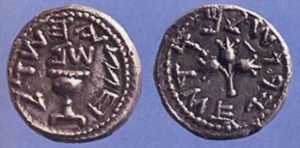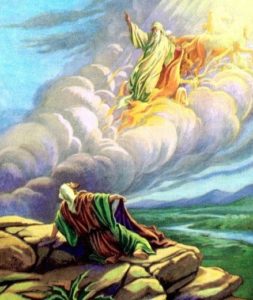In addition to the weekly parasha and Rosh Chodesh reading, this week we also read an extra portion called Parashat Shekalim. In the weeks leading up to Purim and Pesach, there are a number of additional readings to commemorate the key events surrounding those holidays. One of these readings is Shekalim, literally “shekels”, where we recount how the Israelites had each donated a half-shekel in order to conduct a census. The Torah forbids counting souls for several reasons, including the simple fact that people shouldn’t be treated like numbers. So, each adult Israelite male gave a half-shekel (a “substitute for the soul” as the Torah says), the result being the collection of some 300,000 shekels of silver.

Silver half-shekel from the Second Temple era
In the Purim story, we read how Haman promised to pay the king 10,000 kikar of silver to finance the extermination of the Jewish people. One kikar is equivalent to 3000 shekels, meaning Haman amassed 30 million shekels for his final solution. This is an astronomical amount of money, especially back in those days. Where did Haman get it? Rav Ovadia Yosef explained: The Persian and Babylonian businessmen at the time were losing income because the Jewish exiles had come and set up their own superior businesses. The Persians and Babylonians couldn’t compete with the Jews. So, Haman told the businessmen that he can get rid of the Jews for them, and all he needed was a little financial support. They all gladly pitched in for his campaign. This is why the Megillah has Haman saying “I will pay ten thousand kikar of silver al yadei osei hamelakhah [by the hand of those who do business].” (Esther 3:9)
Without those funds, there would be no Purim story! This is one small example of how the shekel—money—drives historical events. We find that, beneath the surface, most of history is a result of economics and business. While so much of Judaism is built upon commemorating the distant past, we seldom think about the financial aspects of those ancient events. Of course, the root reasons for those events are entirely spiritual, yet the way they are brought to actualization is financial. This is hinted to by the Torah’s language itself, where the numerical value of shekel (שקל) is 430, equal to nefesh (נפש), “soul”. It is further alluded to by the Talmud where money is referred to as zuz, literally “move”. Money is the prime “mover” of history. What follows, therefore, is a look at some of the key events of Jewish history—from an economical perspective. Continue reading →


